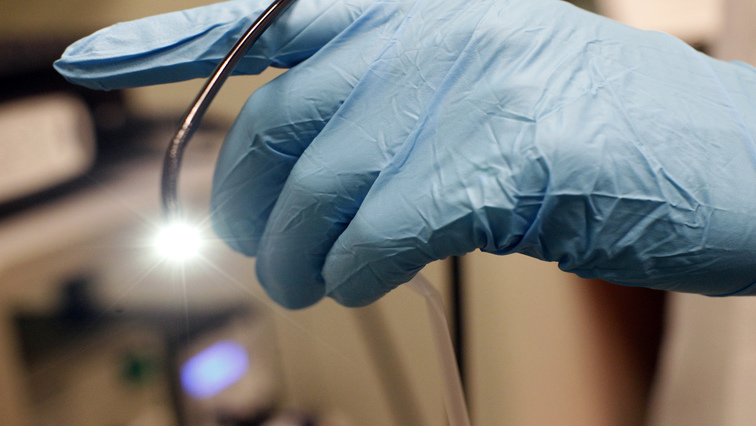The Red Cross War Memorial Children’s Hospital in Cape Town has marked International Childhood Cancer Day on 15 February to raise awareness around treatments and cures for the disease. Doctors say while stigma is still an issue, through education, many young patients can recover and lead full lives.
One of the children, 13-year-old Megan Smit is battling cancer of the blood. Throughout her several long stays at the Red Cross Children’s Hospital, her father, John, was right by her side. He says it has been a difficult time for the family.
“I was like crazy, I don’t know what to do and what to say to her. Tomorrow she is looking for Peter next to her and I say Peter is not here and then she asked, “Daddy what about me?” I was there for her, I never use small words I encouraged her. Today I feel very happy and blessed, I feel very very happy,” says John.
Head of Paediatric Haematology-Oncology, Professor Alan Davidson, says childhood cancer is much rarer than other illnesses but if it goes undiagnosed, it could be life-threatening.
“In that time the disease might have advanced and you never want to put a young child in those worst outcomes, and need for treatment if he can be cured. In order to achieve that cure there might be more side effects,” says Davidson.
Kids News | Marking International Childhood Cancer Day
Davidson says one of the myths is that childhood cancer cannot be cured.
“One of the first thing I say to parents when I meet them for the first time is that there’s hope. Even in cases where cancer has advanced or its malignant type of cancer, there’s always treatment and the possibility of cure,” says Davidson.
DKMS Africa, formerly known as the Sunflower Fund, is a stem cell donor registry and donor centre.
This year, it will work with the Red Cross and Steve Biko hospitals to support eight patients to receive transplants.
Executive Director of DKMS, Alana James, says chances of stem cell matches in South Africa are limited.
“This is not a blood match, this is a genetic match, this is looking for your genetic twin, which means your ancestors, and your culture plays an important role. So within this incredible rainbow nation that we have, it’s even more difficult to find a match because we are so diverse and therefore we need as many from all diversities as possible to come and register,” says James.
Megan’s older brother was a perfect match for her and donated bone marrow.
In eight months, Megan, with her father by her side will have her final check-up at the Red Cross War Memorial Children’s Hospital.
They will hope for the best for the future.


